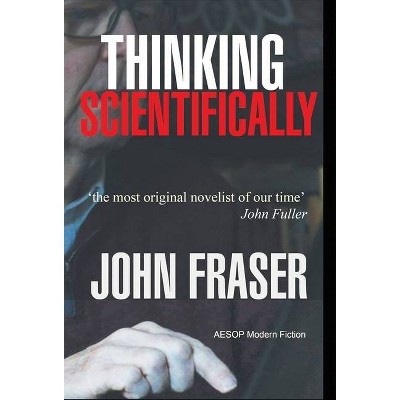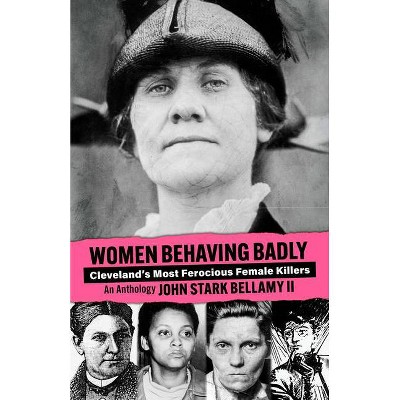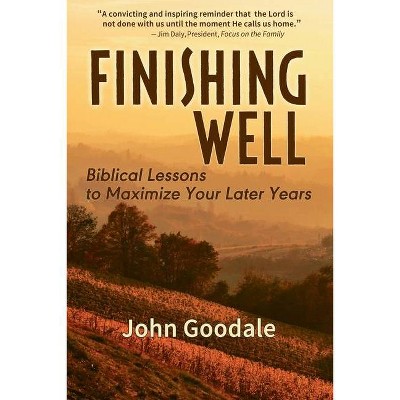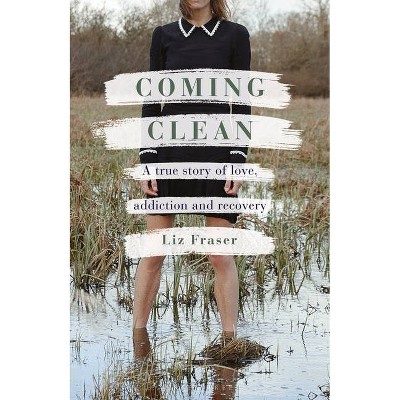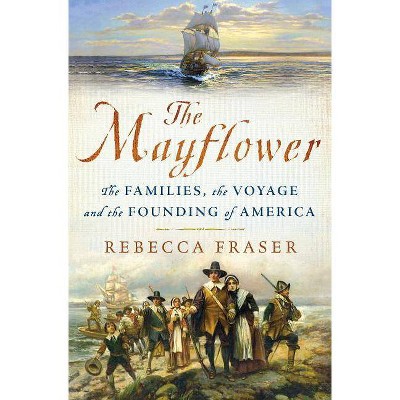Behaving Well - by John Fraser (Hardcover)
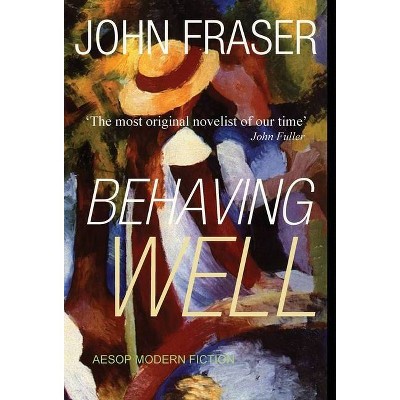
Similar Products
Products of same category from the store
AllProduct info
<p/><br></br><p><b> About the Book </b></p></br></br>Three stories on a related theme: When people are forced to leave their home, in the new place they're often told to 'behave themselves' or be sent somewhere else. In jail they may be released early for 'good behaviour'. Behaving well is a condition for staying. Going back may pose dilemmas even more problematic than behaving badly.<p/><br></br><p><b> Book Synopsis </b></p></br></br><p><strong>Behaving Well</strong> consists of t<strong>hree stories on a related theme: </strong></p><p> </p><p>When people are forced to leave their home, in the new place they're often told to 'behave themselves' or be sent back, to to somewhere else. In jail or equivalent, they - everyone - may be let go early for 'good behaviour'. Behaving well is a condition for staying somewhere - even somewhere you don't want to be - and 'going back' may pose dilemmas even more problematic than behaving badly. You find yourself in a chain of ill-fortunes and tragedies - a nakba, a catastrophe as one aspect of it has been called. What other rules exist, except our efforts at 'behaving well'? But, you change, through life; you watch injustices you say you cannot remedy. And your behaviour changes, together with its driving principles. If you want history - you can't have good behaviour.</p><p> </p><p><strong>Good Behaviour: </strong>Alex, undocumented immigrant, is inspired, shadowed, by the adventures of Alexander, the Great. No one says Alexander behaved well - but he acted! He transformed. He shaped the classical world, scattered Greeks all over, changed cultures, till his suicidal addictions finished him. Alex starts precarious: is jailed, meets a real hero, Valerio - joins the ex-prisoners and outcasts in a barren place. There, they improvise a polity - growing natural drugs, organising an army. Valerio is their inspiration, their guide. Alex teams up with Anicette, whose inspiration is the book 'On Lying'. He spins out of control but his behaviour is consistent. People close to Alex behave in different ways, but all maintain their principles, Anicette as well. Anicette joins with a young ambitious woman, Mélisande. After the death of Alex, we see all who are left have indeed behaved well - at least, consistently. Alex, though, has acted, and imagined: the others, they only react. Anicette concludes, instructing Mélisande - the only judge of our behaviour is ourself. </p><p> </p><p><strong>Misconduct</strong>: Does behaving well count for something? It doesn't seem to matter for success and failure, revelation or obscurity. In Misconduct, Matti, a political exile with aspirations of humanistic value, tries to make a life - maintaining principles, but surviving - the betrayal of his partner, unofficial enslavement. He wanders, has adventures - becomes a military strategist, travels to the stepps with a lady jockey - but his life is seeing others ride away, betray, or suffer punishments, promotions - which he's been unabvle to prevent or even understand. Ultimately, his organisation gives him the mission - to assassinate the Chief. To do so means his organisation will be expunged - a mass non-violent movement, non-violent, exposed. But for the otther opposition, assassination means a civil war that they are bound to lose. Matti would betray his principles, his own morality - and probably involve all oppositions in disaster. But - loyalty, behaving well or badly - he has no choice. Many real circumstances involve the exiled militants in just this - perfidious - choice.</p><p><strong>Catastrophe: </strong>The catastrophe is that everything happens comes to an end - without a scrap of meaning, still less justice, truth, equity. Some people behave very poorly: Yannick who has 'saved' Hana and enslaved her, Pavel .... for others, the behaviour is just on the edge of awful - Typhaine .... Dr Hoffman sees and can do nothing except register. Hana has character, but no context where the character can assert itself or, indeed, be good or bad.</p><p/><br></br><p><b> Review Quotes </b></p></br></br><br><p>One of the most extraordinary publishing events of the past few years has been the rapid, indeed insistent, appearance of the novels of John Fraser. There are few parallels in literary history to this almost simultaneous and largely belated appearance of a mature oeuvre, sprung like Athena from Zeus's forehead; and the novels in themselves are extraordinary. I can think of nothing much like them in fiction. Fraser maintains a masterfully ironic distance from the extreme conditions in which his characters find themselves. There are strikingly beautiful descriptions, veiled allusions to rooted traditions, unlikely events half-glimpsed, abrupted narratives, surreal but somehow apposite social customs. </p><p>Fraser's work is conceived on a heroic scale in terms both of its ideas and its situational metaphors. If he were to be filmed, it would need the combined talents of a Bunuel, a Gilliam, a Cameron. Like Thomas Pynchon, whom in some ways he resembles, Fraser is a deep and serious fantasist, wildly inventive. The reader rides as on a switchback or luge of impetuous attention, with effects flashing by at virtuoso speeds. The characters seem to be unwitting agents of chaos, however much wise reflection the author bestows upon them. They move with shrugging self-assurance through circumstances as richly-detailed and as without reliable compass-points as a Chinese scroll. </p><p>(John Fuller, poet, novelist, Booker Prize nominee and Whitbread Award winner)</p><br>
Price History
Price Archive shows prices from various stores, lets you see history and find the cheapest. There is no actual sale on the website. For all support, inquiry and suggestion messagescommunication@pricearchive.us
